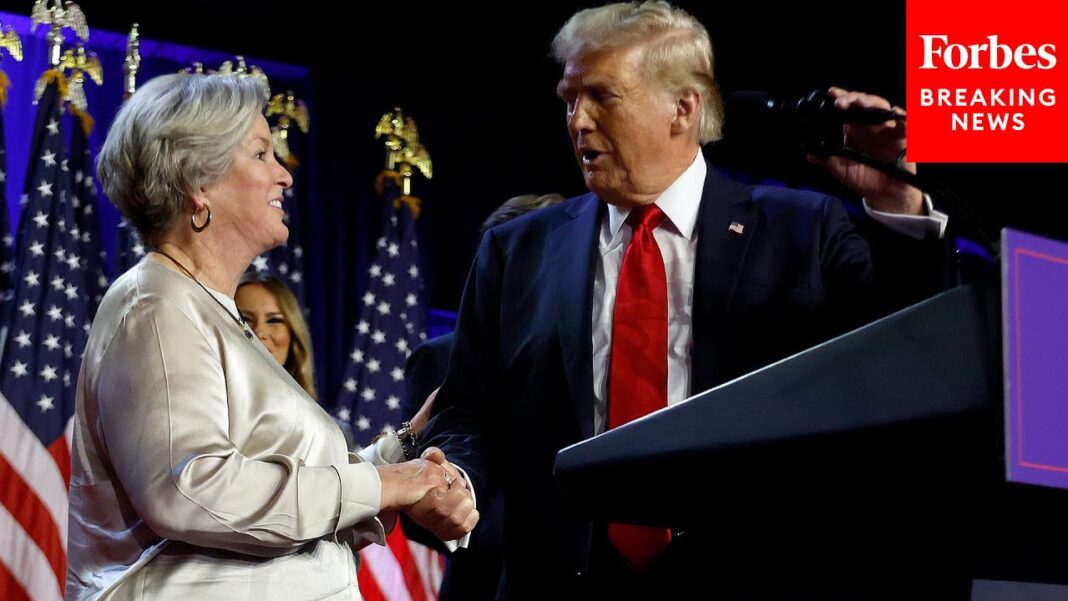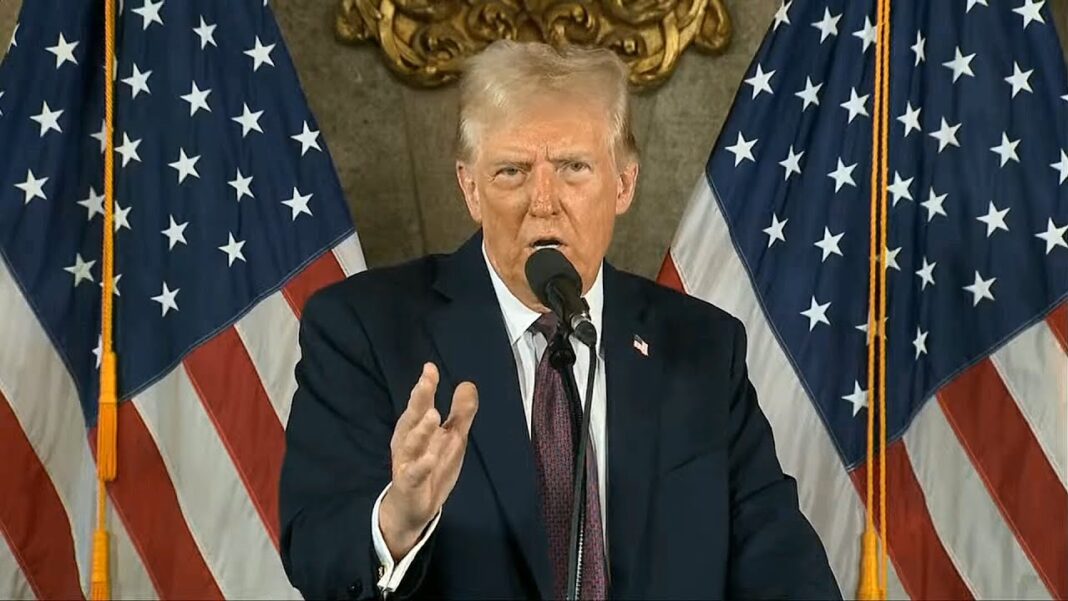Mike Johnson (R-La.) says Republicans want to avoid brinkmanship with Democrats that could destabilize bond markets and weaken the dollar.
House Speaker Mike Johnson (R-La.) said on Jan. 7 that congressional Republicans plan to raise the nation’s borrowing limit through a sweeping party-line reconciliation bill designed to encompass President-elect Donald Trump’s policy priorities.
Johnson described the debt cap increase as a necessary, pro-forma measure to avoid brinkmanship with Democrats that could destabilize bond markets and weaken the dollar while reaffirming the Republican commitment to reducing—not expanding—government spending.
At a Capitol Hill press conference following a meeting of GOP leaders, Johnson explained that the plan is designed to prevent Democrats from using the debt ceiling as a bargaining chip under Trump’s administration. By leveraging the reconciliation process, Republicans aim to bypass the 60-vote Senate threshold and maintain control over the details of the legislation.
“The intention is to handle the debt limit in reconciliation in the process, and that way, as the Republican Party, the party in charge of both chambers, we get to determine the details of that,” Johnson said.
“If it runs through regular order or regular process and as a standalone, or as part of the appropriations, for example, then you have to have both parties negotiating, and we feel like we’re in better stead do it ourselves.”
There was no immediate reaction from Democrats to Johnson’s remarks.
Some Democrats have expressed support for raising the debt limit when Trump first floated the idea in December, including Sen. Elizabeth Warren (D-Mass.) and Rep. Rosa DeLauro (D-Conn.), the top Democrat on the House Appropriations Committee.
The GOP plan stems from an informal December agreement among Republicans to address Trump’s push for a debt ceiling hike. Trump had called for the increase as part of a short-term government funding bill, but some Republicans resisted the move without major spending cuts. Ultimately, dozens of GOP lawmakers voted against the Trump-backed proposal that included the debt ceiling increase.
Johnson acknowledged internal divisions within the GOP regarding the debt ceiling and expressed confidence in resolving the differences through robust discussions.
By Tom Ozimek








